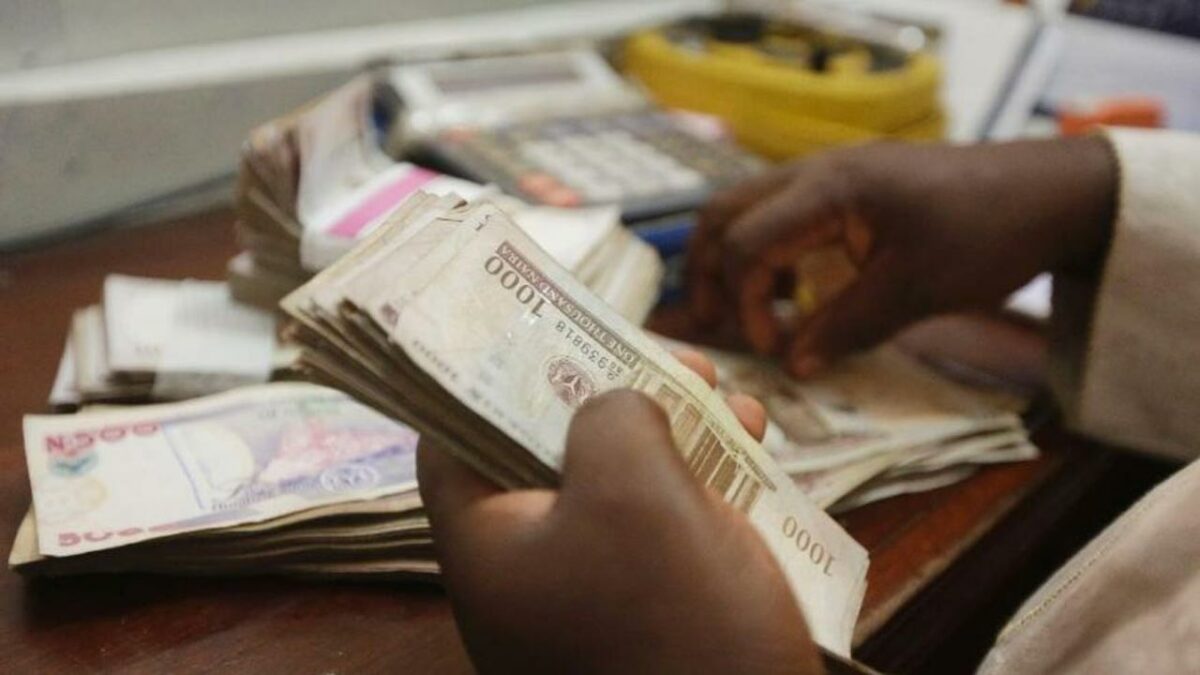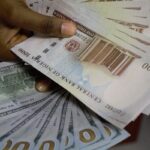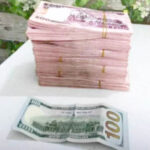The Central Bank of Nigeria recently announced what it referred to as “operational changes to the foreign exchange market”, which saw to the abolishment of segmentation, with all segments collapsed into the Investors and Exporters (I&E) window.
Between June 15th when the change of policy, which was designed to usher in a market-led regime aimed a unified and flexible exchange rate system, took effect and now, the Naira has shed weight by about 14 per cent.
While the move has been generously welcomed by local players across different sectors, foreign investors, speculators and analysts, for some of us, it has been one of cautious optimism, conscious of the fact that what we are looking at is not necessarily what those behind the Hallelujah chorus are looking at, mindful in particular of the possible wild side of a supposed ‘floating’ regime.
On the local front, a major point for the enthusiasm that the policy change received was the swiftness with which it engineered a parity of rates between the official and unofficial markets. But are we truly at the point of convergence, or almost at the point of getting there?
Naira now undervalued after float, Bank of America says
My govt ready to eliminate all of Nigeria’s security challenges — Tinubu
Analysts explain that to be on account of the fact that we are currently at the point of price discovery. “It is expected that this period of adjustment and volatility will eventually lead to a more stable and efficient foreign exchange market,” says Nairametrics.
We are told that there are three major phases to the stage of price discovery. These are the transition phase, speculation and adjustment phase and the intervention phase. No explanation has been offered on which of the phases of the price discovery stage we have been witnessing. But the point was made that “by achieving exchange rate parity for the third consecutive day, analysts believe the official rate has crossed a critical first step in price discovery.”
If this policy has moved us from the point of disparity to parity, which has been in the direction of depreciation, does that then suggest this convergence point as fair value for the naira? What, in fact, is the fair value for the naira? Can we possibly get to a point of attainment of fair value? What, indeed, is the best approach at finding a fair value for the Naira?
In theory, the exchange rate is supposed to be a function of the health of a country’s economy, especially growth and development, trade balances, and current account balances, with variables such as the rate of inflation, interest rates, government debt, political stability determining the swing of the pendulum.
But given the structural deficiencies in the economy along with a heavy dependence on importation of essential products, the idea of leaving the exchange rate to the market to wholly dictate made sense to only ‘devout’ liberal economists.
Indeed, the idea of floating is only one leg of a broader philosophy of ‘structural adjustment’ whose strategies are: “restricted growth rate of money supply, floating exchange and interest rates, reduction in budget deficits, elimination of government subsidies, privatization or commercialization of public enterprises, etc.”
The idea is fashioned after ‘the aggregate demand management thesis of the Monetarist School’ whose basic assumption is that “markets are developed to an extent that permits reliance on market forces for efficient allocation and co-ordination of resources and economic activities. This means that prevailing prices of resources and commodities that reflect their scarcity rating – exchange rates, interest rates (including rents), wages, profits and commodity prices will all be determined in the respective markets.”
There is, however, the argument by another school of thought that these assumptions are at variance with the reality, especially that of the developing countries. “Even in the advanced capitalist countries the independent and uncoordinated decisions of producers and consumers can create problems of over-consumption and under-production. It is this realization that made Keynes recommend an interventionist state to regulate the level of demand through fiscal and monetary policies.”
It is doubtful that the CBN will fully leave the Naira to a free float, not just for the fact that it is a tricky path to take to, given the place of the exchange rate in the mix for so many other things with direct impact on cost of production and cost of living. The ‘subsidy’ on petrol is largely a factor of the exchange rate. The extent to which the NNPCL factored the ‘operational changes’ announced by the CBN into its pricing template is unknown.
But a pricing model prepared by Coronation Research working with a rate of N720.36/USD projects an expected retail price band of N488-492.34 per litre. NNPCL has not made its pricing template public, so it is difficult to confirm what rate was used in its computation. But if its argument is that it used the old exchange rate, it would mean another rise soon in the price of refined products. That is beyond contemplation for now, given the dislocations that the hike in price has occasioned.
The electricity pricing template is also one that feeds off the “inflation rate, exchange rate, US rate of inflation, available generation capacity, gas price, MDA losses and capex adjustment.” So, if the planned hike in price should take the current exchange rate into consideration, it can only mean yet another hike and possibly more in the future. That will also apply to the wheat-based industry, which will see to a hike in the price of bread and other items, as Nigeria is heavily dependent on the importation of wheat to meet this cultivated appetite for a wide range of wheat-based products. Different operators who hitherto had anchored the rise in price of their products on the fact that they had to source FX from the parallel market, rather than the official market, are now hiding under the umbrella of the convergence of the exchange rate to again raise the price of their products. That is the predicament that comes with leaving the currency to ‘float’ while so much is hinged on the value of the currency directly and indirectly.
It is in the light of these concerns that the Central Bank of Nigeria (CBN) over time, opted for what it tagged or saw as a “managed float”. It was a policy that allowed it to intervene in the foreign exchange market if and where it deemed it necessary. Indications are that what the CBN is doing, even now, is yet a managed float.
Kingsley Obiora, Deputy Governor at the CBN has been quoted to have said that “there is no country in the world, even the US, that has a completely free float.”
I think that, again, it is the aberration of a dominant informal market that has helped manage/moderate the shock that might have followed the policy changes that has invariably seen to the ‘devaluation’ of the currency. It speaks to the ‘strength’ or capacity of the parallel market that it has been able to absorb the surge, without triggering a run. Perhaps that only confirms the place of the parallel as the de facto market in the first place.
In all, where this journey takes us is yet unknown. We must be mindful of the argument by Prof. Claude Ake. The market, he says, “cannot be and never has been a strategy of economic growth, even in the experience of the North. The North, exercising the prerogative of victory in the long-drawn-out contest of paradigms of society, has reinvented development as an ideological emblem. The history of economic growth in the North has been sanitised and recast as a celebration of the North. The rigours of primitive accumulation and the process of proletarianisation have been glossed over, as have the contradictions of the market that bred statism and the welfare state, without which capitalism may well have collapsed.”
To Prof. Adebayo Adedeji, “the imposition of the policy of liberalisation on an economy that is very uncompetitive is counter-productive. Measures to make the economy competitive should first be put in place as a prerequisite to liberalisation and marketisation.” This does look like another chicken and egg situation that we have been struggling with, for a long time. Now that we have decisiveness moved more in the direction of marketisation, we can only wait and watch, and most importantly, pray.
Simbo Olorunfemi works for Hoofbeatdotcom, a Nigerian communications consultancy and publisher of Africa Enterprise. Email: [email protected]

 Join Daily Trust WhatsApp Community For Quick Access To News and Happenings Around You.
Join Daily Trust WhatsApp Community For Quick Access To News and Happenings Around You.


